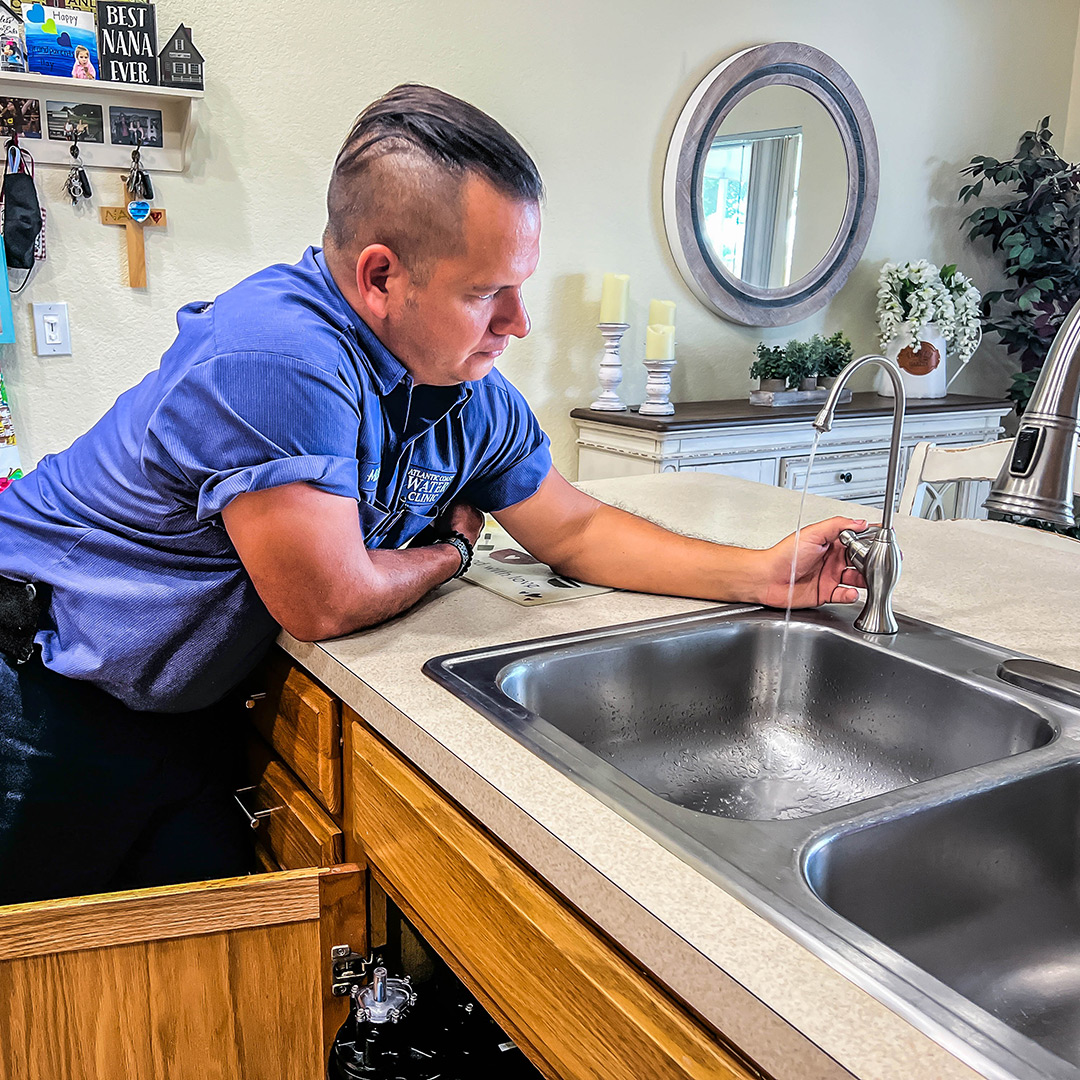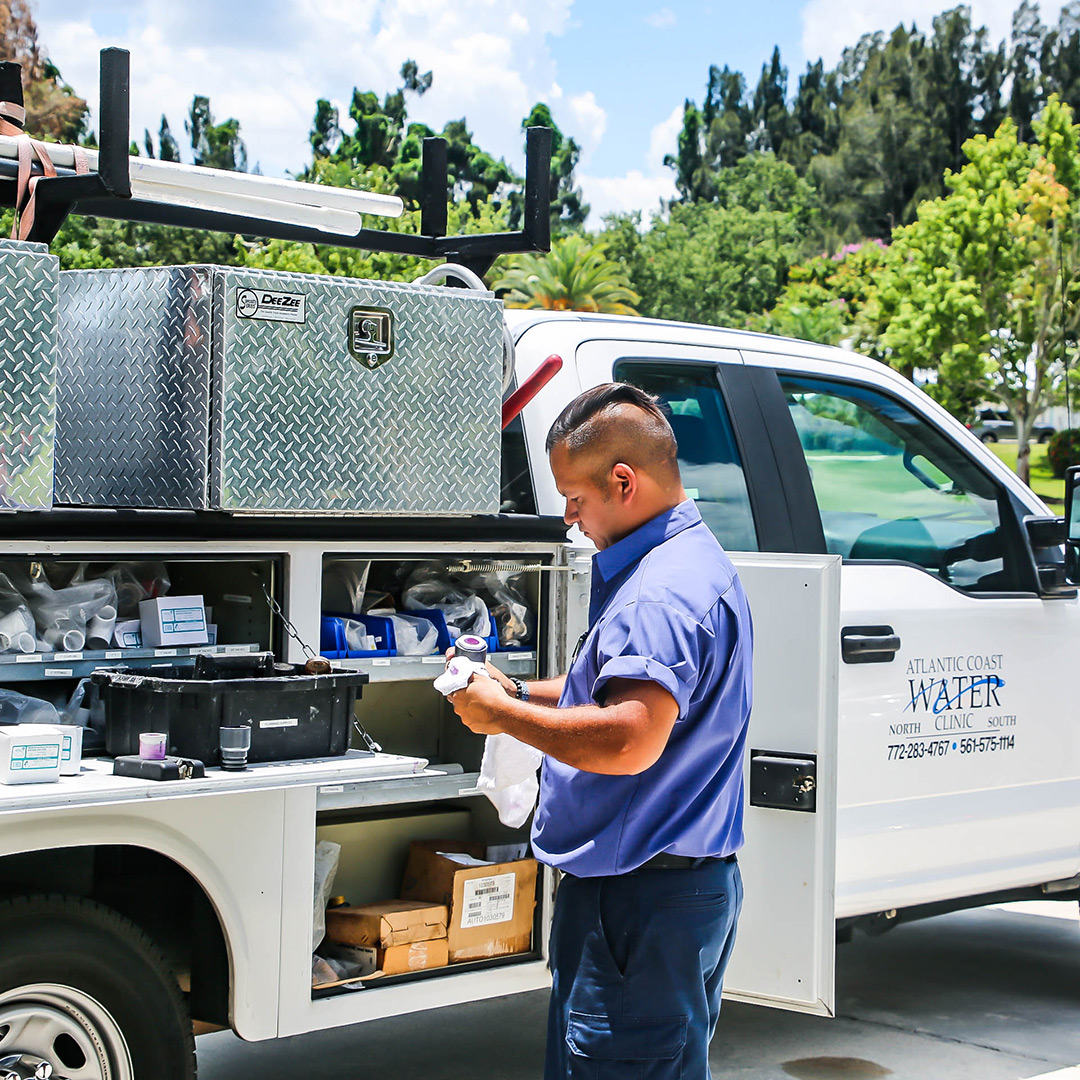Drinking Water Hazards to be Aware Of
Are you drinking municipal water (aka “City Water), or does your drinking water come from a well? In either case, unseen contaminants could negatively impact you and your family’s health. What should you do about your drinking water? We can help you identify and understand drinking water hazards to be aware of.
 Is Tap Water Safe to Drink?
Is Tap Water Safe to Drink?
The safety of tap water varies significantly depending on geographical location, the source of water, and the effectiveness of local water treatment facilities. In most cities, tap water is rigorously tested and treated to meet strict safety standards set by governmental health agencies. However, infrastructure age, maintenance practices, and environmental pollutants can affect water quality. If your tap water comes from a well, you never know what kind of biological contamination it is. Nearby septic tanks or other groundwater contaminants can leech into your drinking water.
Common Safety Issues with Drinking Water
Water safety concerns typically revolve around contaminants that can be classified into several categories:
Biological: Bacteria, viruses, and parasites that can cause illnesses, such as E. coli, Giardia, and Cryptosporidium.
Chemical: Industrial chemicals, pesticides, heavy metals like lead and mercury, and residues from pharmaceuticals and personal care products.
Physical: Sediments or organic material that can enter water supplies from natural sources or human activities.
Radiological: Contaminants that emit radiation, such as uranium, which can naturally occur in some water sources.
How to Tell If Your Drinking Water Is Safe
Taste, Odor, and Appearance
Changes can be an initial indicator of potential problems. However, many contaminants are tasteless, odorless, and invisible.
Water Quality Reports
In many regions, water providers must supply their customers with annual water quality reports. These reports detail contaminant levels and instances where water quality standards were unmet.
Home Water Testing Kits
Available for purchase, these kits can test for specific contaminants, including lead, bacteria, and pH levels. You should send a water sample to an experienced and reputable water service for a more comprehensive analysis.
Improving Your Drinking Water with Filtration Systems
Filtration systems can significantly improve tap water quality by removing contaminants. Here’s a look at common types:
Activated Carbon Filters
Activated carbon filters are best for removing organic compounds, chlorine, and chemicals responsible for taste and odor issues. However, they are less effective against minerals and salts.
Reverse Osmosis Systems
Reverse osmosis systems use a semipermeable membrane to remove many contaminants, including dissolved salts, bacteria, and viruses.
Ultraviolet (UV) Filters
Over the last decade, the medical community has accepted the idea of using UV light to kill bacteria and viruses; some medical institutions even use it to disinfect patient rooms. UV filters are best used with other filtration methods to ensure comprehensive water treatment.
Ion Exchange Units
Ion exchange filters are excellent for softening water and removing contaminants like calcium, magnesium, and certain radioactive materials.
 In Conclusion
In Conclusion
You should employ a proactive approach to protect your drinking water. Understanding potential contaminants, staying informed through water quality reports, and considering water testing by a qualified water service if you have specific concerns. For many, investing in a home water filtration system offers peace of mind and a guarantee of water safety. As our understanding of drinking water contaminants advances, so should our strategies for safeguarding our water supply. Remember, the journey to safe drinking water is continuous, requiring vigilance, education, and proactive measures to protect our health.
Atlantic Coast Water Clinic Can Make Your Drinking Water Safe
Call us today at 772-283-4767 or fill out our simple contact form. Our water specialist can come to your home and take a sample of your water to determine its contaminants. Once we know the pollutants in your water, we can install the best filtration system for your home. Don’t risk your family’s health with contaminated drinking water—call us today!


 772-283-4767
772-283-4767